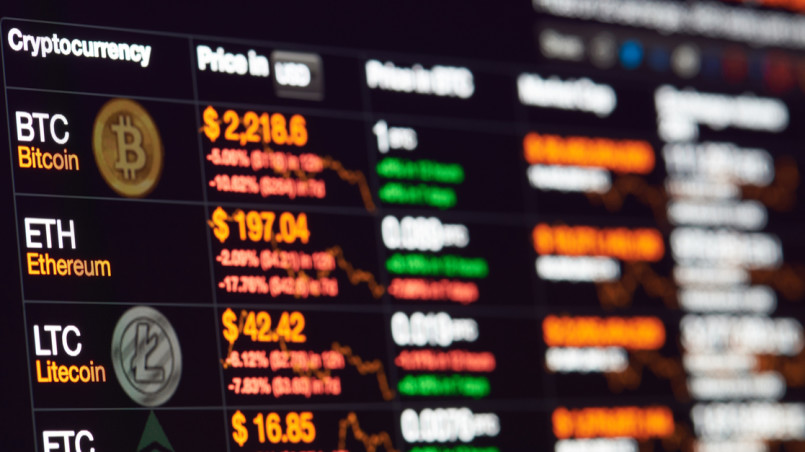Recent posts

Money Talks
Maximising Business and Trading Opportunities Through Smart Online Strategies
07 November 2025

Shopaholics
How a Filter Jug Can Actually Improve Your Daily Water
30 October 2025

Doctors Orders
Grow Your Practice With SEO - Physio's Guide To Marketing
28 October 2025

Doctors Orders
How To Grow Your Chiropractor Practice
27 October 2025
Popular posts
Extravaganza
Trending Music Hashtags To Get Your Posts Noticed
24 August 2018
Geek Chic
How To Fix iPhone/iPad Only Charging In Certain Positions
05 July 2020
Extravaganza
Trending Wedding Hashtags To Get Your Posts Noticed
18 September 2018
Money Talks
How To Find Coupons & Vouchers Online In South Africa
28 March 2019
Types of Cryptocurrency Exchanges
26 June 2018 | 0 comments | Posted by Che Kohler in Money Talks
So you've heard about Bitcoin and altcoins and wanted to get some skin in the game. For most investors looking to trade their hard-earned fiat currency for the cryptocurrency, they will need to find a reliable exchange in order to perform a trade.
Exchanges are the entry point for investors who want to get into the cryptocurrency scene. But not all exchanges provide the same services, and it's important to know the distinctions between the different types of exchanges.
What is an exchange?
Cryptocurrency exchanges are online platforms where you can exchange one cryptocurrency for another cryptocurrency. This can either be a fiat to crypto or crypto to crypto exchange. In other words, depending on the exchange, it is either like a stock exchange or a currency exchange.
These exchanges that allow customers to trade digital currencies for other assets, such as conventional fiat money, or different digital currencies. They can be market makers that typically take the bid/
What is a fiat/crypto exchange?
Fiat to crypto exchanges offers investors the opportunity to trade their local currency or US dollars for cryptocurrency and vice versa. These exchanges often have very little support and features and are only used as an entry point into the market.
What is a centralised exchange?
Centralized exchanges are intermediaries such as companies that act as middlemen in order to facilitate trading on their platform. In exchange for providing this service, intermediaries collect trading fees. In essence, centralized exchanges often act as the first point of contact for newcomers that are interested in trading cryptocurrency. Many individuals seek to have an interface that can connect them to both cryptocurrency trading and the real economy, and centralized exchanges provide that.
Pros
- Advanced features
- Easy to use ( not for all )
- Advanced tools
- High liquidity
- Faster transaction speeds
Cons
- Exchange control funds
- Personal documents require ( for some features )
- Maybe face with downtime or hacking attempts
- Not anonymous
What is a decentralised exchange?
A decentralised exchange does not require intermediaries for their operation. Instead of matching buy orders and sell orders in an order book, a decentralised exchange operates by matching the people behind those buy and sell orders. The architecture of decentralised exchanges means that there are significant advantages to using them. For example, the absence of an intermediary allows for almost non-existent trading fees. Decentralised exchanges are also more private, centralised exchanges often require personal information, and proof of identity, e.g. passport, in order to trade on their platform.
A decentralised exchange does not require any disclosure of identity, with a disclosure of identity only required to the individual that you are conducting the trade with. Lastly, the issue of security is also improved under the decentralised exchange model. Decentralised exchanges do not hold cryptocurrency for users, and instead, users are connected directly with each other, meaning that you do not have to worry about the security of your cryptocurrency sitting on an exchange.
Pros
- User control their own funds
- Anonymous
- No hack for central server and downtime
- No trading fees
- No personal documents to apply
Cons
- Not easy to use ( not for the beginner )
- Basic features
- If your computer or account has been hacked, say bye bye to your money
- Slow transaction times
What is a peer to peer exchange?
P2P Exchanges match Buyers with Bitcoin Sellers. These are individuals trading back and forth with other individuals. Essentially, the sellers are setting their own price and what types of payments they will accept. Many accept PayPal, Bank Transfers, Credit Cards and even cold, hard cash. The Exchange acts more like a dating service, matching people interested in trading cryptocurrency. Of course, they take a small fee for this matchmaking service.
Security measures when using exchanges
While exchanges are great for trading and your cryptocurrency they're not exactly the safest place to store your finds and I highly recommend you do not store too much or any currency on an exchange. If you want to keep your currency safe rather opt for using a hot wallet or cold storage.
For more on hot
Why we need more exchanges
Since we're dealing with global technology in a world that is dived by sovereign borders and regulations we need more exchanges to facilitate trade in various regions.
Exchanges help migrate value from traditional mediums of value like various fiat currencies and move them into a digital asset where users can then buy, sell or invest in various projects regardless of geographical location and take advantage of opportunities anywhere in the world.
Cryptocurrency exchanges play an essential role in the proliferation of investors in the space, and the more exchanges we have will only help further adoption of this revolutionary new financial tool and the underlying technology.
Contact us
If you want to know more about cryptocurrency, don’t be shy we’re happy to assist. Simply contact us here
Disclaimer: This article should not be taken as, and is not intended to provide any investment advice and is for educational purposes only. As of the time posting the writers may or may not have holdings in some of the coins or tokens they cover. Please conduct your own thorough research before investing in any cryptocurrency as all investments contain risk.
Tags: Cryptocurrency, Tools
You might also like
How To Pass UTM Tracking To A Third Party Page
10 October 2025
Posted by Che Kohler in nichemarket Advice
A detailed tutorial on creating a solution that captures UTM parameters on your site and helps pass it on to a site you do not own like a booking eng...
Read moreHow a Filter Jug Can Actually Improve Your Daily Water
30 October 2025
Posted by Jasper J in Shopaholics
A look at some of the contaminants you can find in seemingly clear water coming from your taps, and what you can do to enjoy a cleaner higher quality...
Read more{{comment.sUserName}}
{{comment.iDayLastEdit}} day ago
{{comment.iDayLastEdit}} days ago
 {{blogcategory.sCategoryName}}
{{blogcategory.sCategoryName}}

